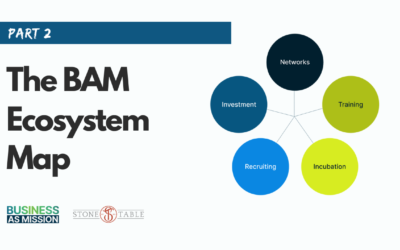Workism and Idolatry: in Colossians

Workism: Faith in Work
As I’ve been piecing together Paul’s theology in the epistle to the Colossians, I’ve found that there is something interesting he addresses when it comes to spiritual powers. While there is some debate about the verse in specific, there is a lot to glean from it when it comes to today’s world & work climate.
Paul writes,
“See to it that no one takes you captive by philosophy and empty deceit, according to human tradition, according to the elemental spirits of the world, and not according to Christ.” (Colossians 2:8, ESV).
What’s interesting about this is that Paul is addressing a crowd that has fallen into the temptation to put their faith in human tradition and worldly principles (“elemental spirits”, stoicheion), rather than trusting in Christ.
There is a lot more context to add to that, but for the sake of space, consider that for a moment. The followers of Jesus in Colossae were trusting their worldly traditions, basic philosophy, and empty principles of the world as their source (or access to God).
Christians. We are talking about Christians.
Workism is something similar, too, isn’t it? What would separate workism from falling under the category of “elemental principles/spirits/rudiments” as Paul wrote in this letter? I would vote not much.
Committing ourselves to finding purpose in something that was created, say, an object, system, person, or government, would be a form of idolatry. We cannot find purpose in the created, only in the Creator.
The interesting note that Paul addresses here in Colossians is that when we trust in these worldly principles for our sustenance, provision, and as our source or access to God, we are actually ascribing power (or worship) to these things. That’s the intriguing twist there, where “elemental principles” become “elemental spirits” as we “power them up” with our faith.
Workism comes from a distorted sense of faith – we simply put it in the wrong place.
When we put our faith in the wrong things, like created objects, we are ascribing power to these objects/systems/philosophies over us. We are ultimately cutting out the supreme power of Christ in our lives and inserting a false power before Him, limiting our access to God’s life-giving power.
Workism is a philosophy that does just the same. Workism takes our faith from God and inserts it into our work, thus creating a divide between us and our Provider where we see our paycheck as our provider, our output as our purpose, and our role as our identity.
Workism is not new, it is a basic form of idolatry.
Discipline and Power
It’s fascinating to read through Colossians and see that Paul was writing into a mess of people believing that their disciplines were more powerful than Christ. I think even this small example can shed light into workism and its effects today.
The believers in Colossae were somewhat surrounded by Jewish sophists, who were ascetic theosophists (mix of Yahweh worship with philosophy, to put it briefly) that busied themselves with speculative & specific enquiries into angels, rituals of the Mosaic law, and regulations of traditional Jewish life. These things may not be entirely horrible on the surface, but their hearts were far from right.
These sophists believed that these angelic powers and rituals of the law were more powerful than Christ. They believed that they had Christ, but also needed more – something “more powerful” for daily life – which was their goal in “appeasing” these angelic/little-g-god powers with their ascetic practices.
Workism creates something similar in our lives – it creates a commanding, legalistic, and irrefutable demand of obedience. It is not something graceful, empowering, and uplifting, it is cold, gray, and flat. Workism is hollow, but we continue to give it power over our lives, submitting ourselves in blind obedience to a philosophy that has no power in & of itself.
We ascribe power to our work through workism. Work in & of itself has no power over us as believers in Christ – we are inherently free because of His work. Yet, we continue to double-back and put this power in the wrong place.
We have been given power, authority, fulfillment, joy, peace, and love in Christ – all things that workism says come through work. What’s wrong with that picture?
Somebody’s lying. And it ain’t Jesus.
The Colossians saw their disciplines as having power, just as we see our work as having power (by giving us fulfillment, purpose, etc.). They saw their disciplines as being the power that transformed, but we know it is the Holy Spirit through our disciplines that transforms. Do you see how close that is to the truth? Workism preaches something similarly so close to the truth, but just tweaked enough to get you sidetracked & burned out.
Workism and Redemption
Paul wrote to these Colossian Christians that,
“If with Christ you died to the elemental spirits of the world, why, as if you were still alive in the world, do you submit to regulations… These have indeed an appearance of wisdom in promoting self-made religion and asceticism and severity to the body, but they are of no value in stopping the indulgence of the flesh.” (Colossians 2:20, 23).
Paul established that their hearts were not being addressed with these regulations & traditions. They were pursuing something that had “no value” in truly stopping their corrupt hearts – something that only Christ had the power to do.
When we examine ourselves participating in workism, we are examining a heart posture that is seeking after God in creation, rather than God Himself.
We have direct access through Christ to the Father Himself now, but when we practice workism and its vain philosophy, we are telling ourselves that we must do to be validated by the Father. We are preaching to ourselves that what Christ did is not enough for me to be fulfilled, purposed, and accepted, but now I must add my work output & status to the picture for a REAL salvation experience.
Do you see how closely workism is related to the philosophies that Paul wrote about in Colossians? We are having the same issues today that this church had in the first century. The devil is not creative.
I’ve learned recently that evil is merely a corruption of good. Evil was not created, but it was a distortion of that which was created, which was “good” (Genesis 1:31). Satan cannot create, but he can lie.
Work was created good, just as Adam was created with the intent of him working (Genesis 2:15). Workism, a distortion of what was created good, is not the intent for man, but is an evil spin-off of what God created as good. We were cheated into believing the lie that our purpose comes from our work, our identity is found in our paycheck, and our status determines our value. Christ already paid for all of that, 2000 years ago.
Really, we are finding ourselves in a place of needing repentance. Workism has dominated our society, our culture, and even our churches. Pastors, businesspeople, and educators are all suffering from this ploy of the enemy, an idolatry that has been around since Genesis 3, and we must place ourselves humbly before God and release our control of our circumstances to put them back in His hands. When we do, the order is restored. When we trust God with what is most important to us, perhaps even our status or our paycheck, we are made right before Him.








